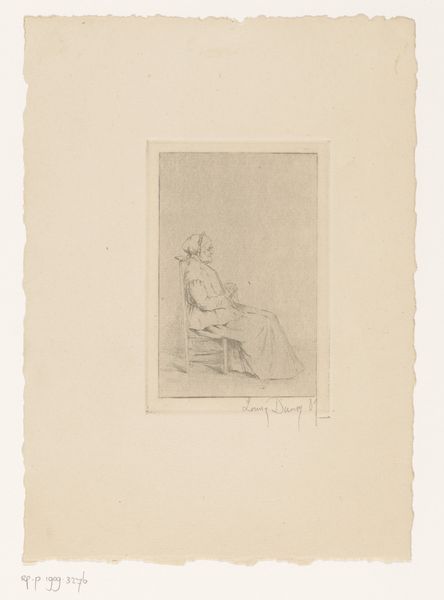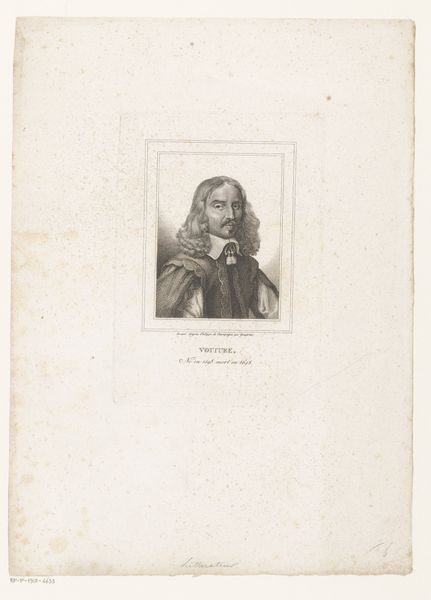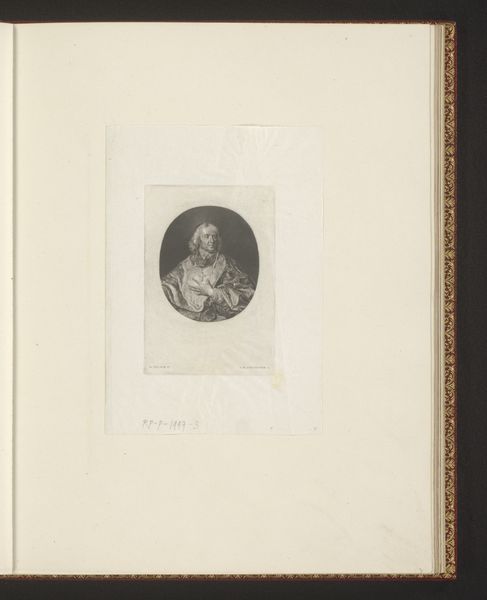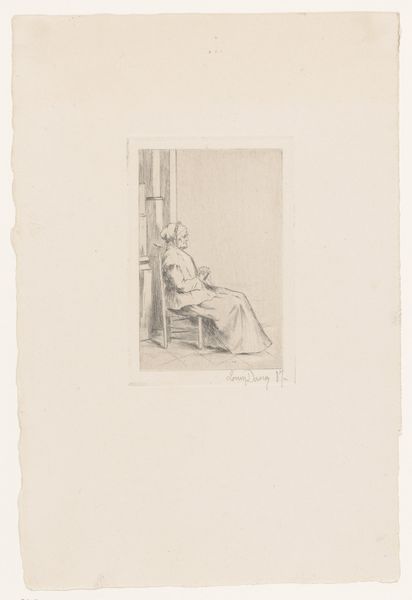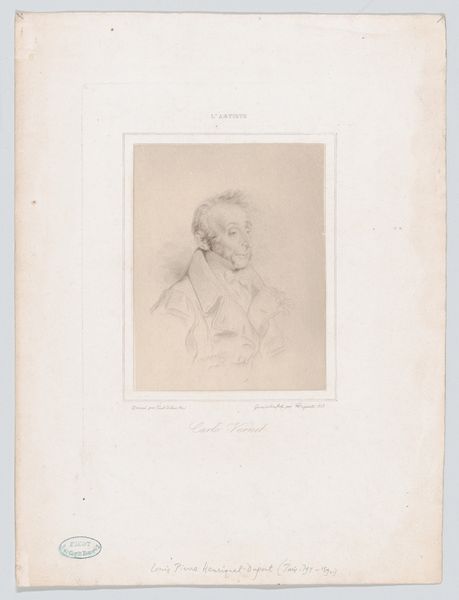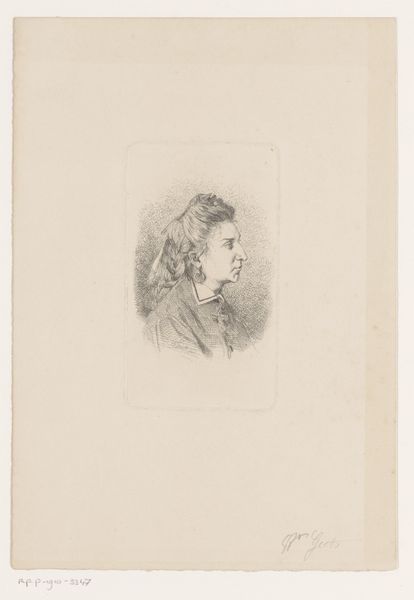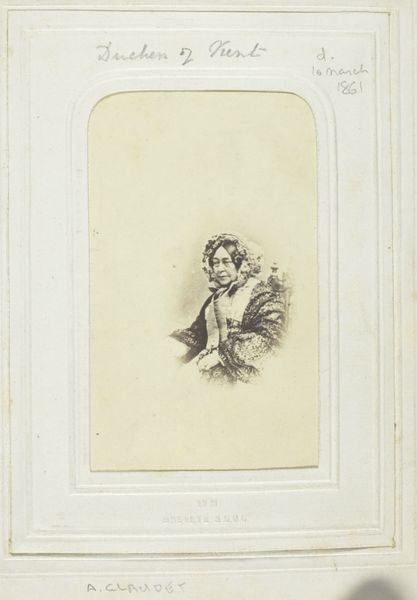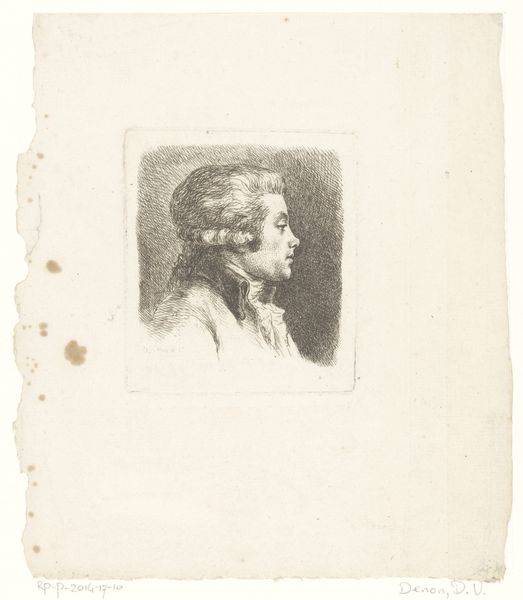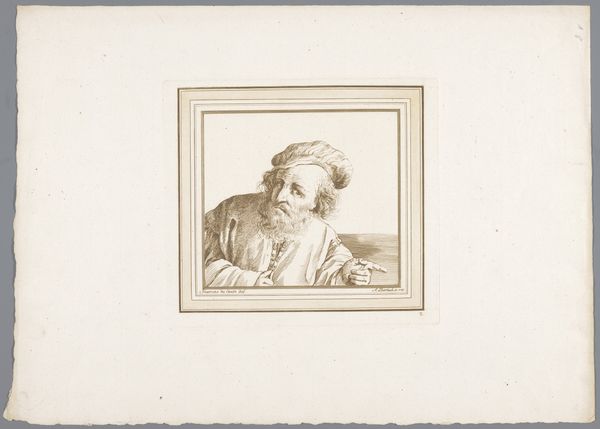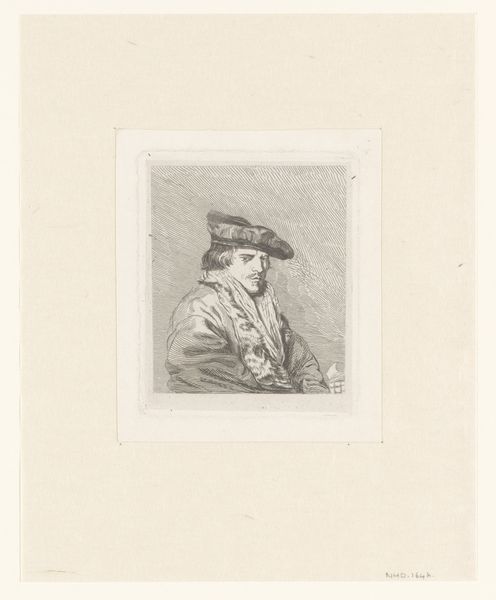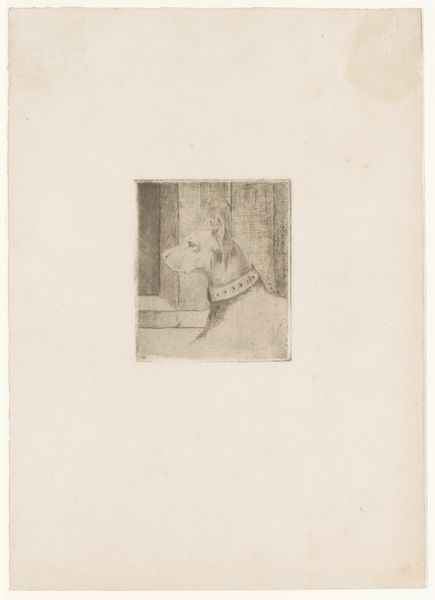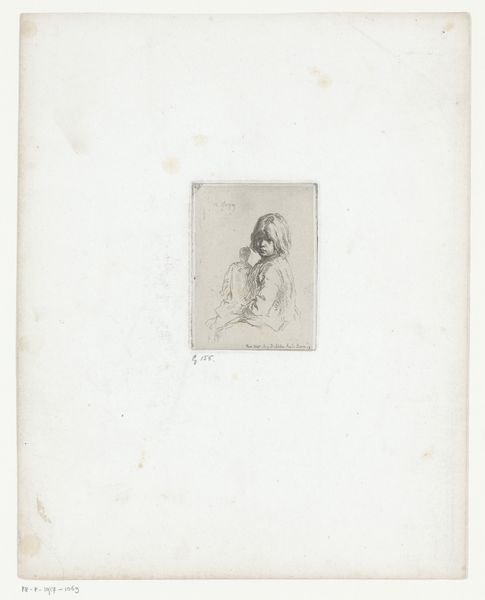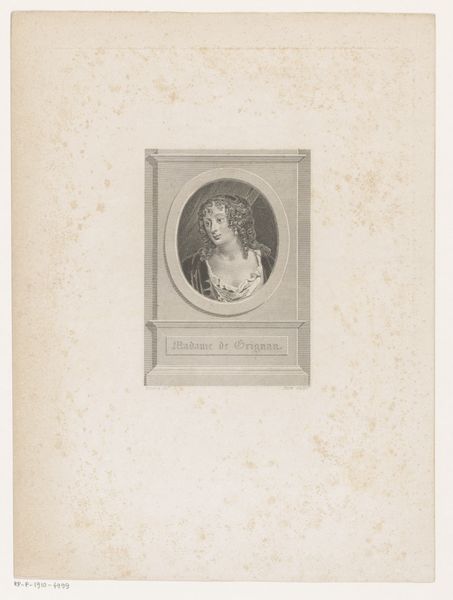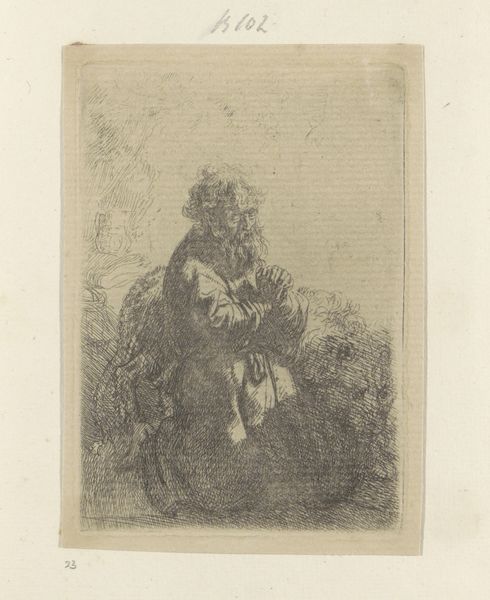
drawing, paper, pencil
#
portrait
#
pencil drawn
#
drawing
#
neoclacissism
#
charcoal drawing
#
paper
#
pencil drawing
#
pencil
#
genre-painting
Dimensions: height 221 mm, width 176 mm
Copyright: Rijks Museum: Open Domain
Curator: Standing before us is "Klavierspeelster," or "Piano Player," a drawing completed around 1767 by Johannes Körnlein, housed here at the Rijksmuseum. It is crafted from pencil on paper. Editor: My first impression? A quiet, contemplative mood. The restrained palette emphasizes form and line above all else, creating a rather understated scene. Curator: Indeed. In the late 18th century, art increasingly catered to bourgeois values and a cult of domesticity. Pictures of women and family replaced classical depictions of idealized mythological scenes, signaling societal values. Editor: I agree. It's as though we are intruding upon a private moment, as she’s practicing. There’s very interesting geometric blocking of the piano against the sweeping, almost Rococo line of her scarf and hair. A nice tension is created through the contrast. Curator: Exactly. Note the deliberate rendering of her attire and hair; it reflects the shift towards simpler neoclassical styles, a turn from the frivolous excesses associated with the aristocracy prior to the French Revolution. Editor: I can see what you mean, particularly in the somewhat severe lines defining her face. However, her hands have a very graceful pose, as she is interpreting music notation with the score clearly displayed; you notice how the staves and notes rhythmically echo throughout the scene. It’s more than a simple portrait, there's an added sense of artistry present here. Curator: It reflects how art was becoming democratized. It wasn’t enough to simply show nobility and family lines, but artistic sensibility mattered more as people started becoming connoisseurs of art themselves. Editor: A blending of social commentary and artistry, presented with minimalist beauty. Quite the synthesis. Curator: Ultimately, Körlein presents both the realities of shifting social and artistic norms. Editor: In this artwork, Körlein allows us to see the artistry residing in an everyday scenario. Both views make the drawing a wonderful insight into life during that period.
Comments
No comments
Be the first to comment and join the conversation on the ultimate creative platform.
